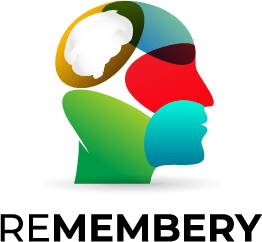The average human attention span has dropped significantly, and short-term recall has become more fragile. Studies show that people forget nearly 40% of new information within 24 hours and up to 70% after a week without reinforcement. Digital tools like reminder apps, event alerts, and daily reminders have become essential in offsetting this natural forgetfulness. These tools act as a form of digital memory, reinforcing routines and ensuring important actions are not overlooked. Whether someone is managing a packed schedule, experiencing cognitive fatigue, or living in a dementia friendly environment, structured reminders can serve as reliable cognitive anchors, supporting the formation of better habits over time.
Understanding Micro Habits and Their Impact
Micro habits are small, manageable actions that are easy to integrate into your routine. These tiny habits require minimal effort and mental load, making them more likely to stick than larger, overwhelming goals. When combined with a well-designed reminder application, they become nearly effortless to implement. For instance, a simple alert to stand and stretch every hour can prevent long-term physical strain while reinforcing a routine of movement.
The key challenge in adopting new behaviors isn’t usually motivation; it’s remembering to act. That’s where digital daily reminders step in, not to nag or control, but to provide structure in a chaotic, distraction-filled environment. Micro-reminders become the cue that prompts action, making better habits more likely to stick through repetition.
Designing a Digital Memory System That Works
Human memory, especially in the short term, is notoriously unreliable. This is where digital memory becomes crucial. By using digital reminders as a personal extension of the brain, individuals can reduce cognitive load and improve follow-through.
A strong reminder app offers the ability to schedule repetitive event alerts, categorize tasks, and link them to specific times or locations. This layered reminder system helps reduce the effects of short term memory loss by reinforcing intention with digital consistency. For example, setting a recurring alert to hydrate every two hours builds habit through frequency, while location-based reminders can prompt grocery lists only when you’re near the store.
In more sensitive environments, such as those dealing with memory loss or mild cognitive impairments, these tools help create a dementia friendly environment. Voice-enabled alerts, image-based icons, and simplified interfaces support individuals in maintaining independence, ensuring critical tasks like taking medication or preparing meals are not forgotten.
Steps to Build Better Habits Using Reminder Tools
1. Choose the Right Type of Reminder
There are various forms of reminders, time-based, location-based, or action-based. The best reminder application allows flexibility to choose what works best for your lifestyle. For those with busy schedules, timed daily reminders may be more effective. For others, geofenced alerts linked to a location might help in reducing forgetfulness related to errands.
2. Start with One Micro Habit at a Time
Focus on building one micro habit before stacking others. For example, begin with brushing your teeth, followed by a 2-minute mindfulness practice. Use a reminder app to schedule an alert just after your brushing time. When repeated, this tiny habit will form a solid part of your routine.
3. Use Repetition to Build Memory
Repetition is the foundation of habit formation. With consistent event alerts, the brain gradually builds associations. For individuals dealing with short term memory loss, this repetition becomes even more critical. Even if the action is forgotten initially, the reminder application ensures another chance to perform it.
4. Customize Alerts for Clarity
Generic alerts are easy to ignore. Instead, write personalized, action-oriented messages in your reminder app like “Stand up and breathe deeply for 2 minutes” instead of simply “Breathe.” These detailed instructions reduce ambiguity and create a stronger link between the cue and the habit you’re trying to build.
5. Support Cognitive Conditions with Layered Reminders
For individuals with early signs of memory loss or those living in a dementia friendly environment, use a combination of audio, visual, and tactile reminders. Some reminder applications can integrate voice commands, making them more intuitive. Clear icons or images can also replace text-heavy alerts to support different cognitive needs.
The Role of Consistency in Reinforcement
Consistency is not just about performing a task every day; it’s about performing it in the same context. A reminder that always appears at 7:00 AM trains your brain to expect that action at that time. Over time, this turns a conscious decision into an automatic behavior. This approach is especially powerful in managing the natural lapses caused by forgetfulness or external distractions.
Digital daily reminders make this level of consistency achievable. Unlike human memory, which may fail during stressful or busy times, technology does not forget. Whether you’re using alerts to combat short term memory loss or to simply stay on track with health goals, the reliability of your digital memory becomes a behavioral advantage.
Micro Habits as a Long-Term Strategy
Instead of focusing on monumental life changes, start with tiny habits linked to well-placed digital nudges. For example, getting a notification to take three deep breaths at lunch, drink water after each call, or journal for 60 seconds before bed might seem minor. But each action reinforces the mental loop: cue, action, reward. Supported by reminder apps, these loops accumulate into meaningful transformation.
This method is particularly effective for those managing the early signs of memory loss or anyone trying to prevent cognitive decline. When embedded into a dementia friendly environment, these cues serve not just as reminders, but as confidence-builders that help individuals feel more in control of their day.
Final Thoughts
In a world where distractions, cognitive overload, and forgetfulness are increasingly common, building better habits with the help of digital micro-reminders isn’t just helpful, it’s essential. Leveraging a trusted Remembery App, a reminder application turns intention into action, supports individuals with memory loss, and ensures that even the smallest micro habits take root and grow. With intentional design and consistent event alerts, anyone can build a routine that’s both supportive and sustainable, regardless of their cognitive starting point.



